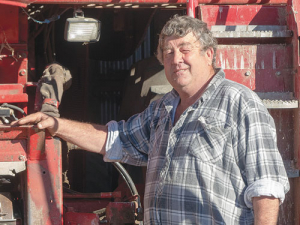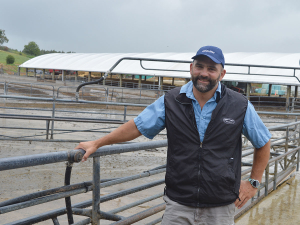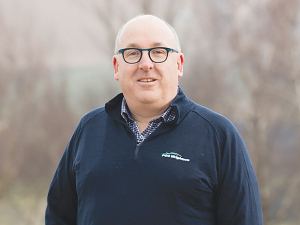The 30-year wheat farming career of Syd Worsfold, Canterbury, has been recognised with the title of Federated Farmers Arable Farmer of the Year for 2018.
Worsfold says the honour is not so much for his prowess as a farmer, but his work with a wide range of farmer and industry bodies. These include United Wheatgrowers, the Foundation for Arable Research (FAR), AIMI (the Arable Industry Marketing Initiative), and a liaison committee of farmers, millers, and bakers which helps set research agendas.
It is Worsfold’s work with United Wheatgrowers, where he was chairman for five years and is still the vice-chair, he has enjoyed the most.
“You’re actually working with industry to try to better it for everyone,” he told Rural News.
“And I’ve met really great people along the way: farmers, industry and the staff we’ve dealt with -- that’s made it enjoyable. You can count them as friends, basically, so that’s the bit I’ve probably enjoyed the most.”
Worsfold says the deregulation of the wheat industry about 1987 first got him involved with Wheatgrowers. Before then there was effectively only one recognised standard for wheat -- a milling grade. At that time the Wheat Board set the price which millers and farmers had to accept.
Since then the milling industry had become much more sophisticated, with a range of quality specifications for different types of wheat for various different uses.
Worsfold believes he was noticed in the early days of deregulation because he was willing to experiment and diversify.
“We were lucky a couple of varieties came into the system that met their requirements.”
Another big change was the trend to grow wheat for stock feed. Two-thirds of the wheat grown in New Zealand is now the higher-yielding stock feed varieties.
Worsfold believes feed varieties are “a bit simpler” to grow, but he has continued to concentrate on milling wheat.
Growing paddock-size batches of milling wheat to specification meant having to “be on your toes” with inputs and timing.
“It is a lot harder to grow a big tonnage and have it meet the grade.”
However, millers appreciate batches that meet their needs rather than imported bulk shiploads of mixed quality.
“In spite of what people say, the mills do actually like New Zealand wheat.”
He says a challenge for the NZ industry is getting South Island wheat into the North Island, in the face of bulk imports.
He believes the development of the “inland port” at Rolleston means wheat can be shipped in standard 20 tonne containers to reduce handling costs. He sees positive signs for the industry: next season’s prices the second-highest he has ever seen; they have been down at unsustainable levels for the last two years.
In another sign of the increasing sophistication of the industry, Worsfold recently became the poster-boy for Countdown supermarkets’ commitment to use Canterbury wheat – 10,000t a year – for all bread and rolls baked instore.
Cropping runs in the blood
Worsfold grew up on his father’s sheep and arable farm not far from the property at Greendale that he and his wife Trish have farmed for the last 31 years.
He’s the third generation of Worsfold croppers in the district. His grandfather ran a contracting business from the mid-1920s with a threshing machine driven by a steam traction engine.
A souvenir of those days now stands in the farm’s implement shed: a wooden tool box from the traction engine labelled Worsfold and Cullen in faded paint.
Syd and son Earl both still do contracting around the district.
Meanwhile, Earl is progressively taking over running the farm and is leasing a neighbouring block, for a total area of 400ha. Together they crop about 330ha and run stock on the remainder, mainly stony riverbed soils.
The farm borders the Selwyn River to the south and straddles the dry bed of the Hawkins River which usually only runs about once every 10 years.
The Worsfolds fatten up to 2500 lambs through winter (currently 200), and run up to 500 lambing ewes (300 this year).
They also have about 80 dairy heifers, which will return to their home farms for mating in September.
The farm has some irrigation from surface water from a creek in the Selwyn, and a 60m well on the leased block, both unreliable late in the summer. In most years that is enough to see them through to Christmas with traditional crops.
Earl Worsfold is now leading the development of the farm, signing up for the Central Plains Water Scheme, which will provide one-third more water and improve flexibility.
Syd says it will allow them to grow more valuable seed crops such as radish into January.
He quips that with Earl introducing technology such as GPS he is now “the boy around the farm -- the tractor driver”.
“When we get the driverless tractor here I’ll be able to retire properly.”











